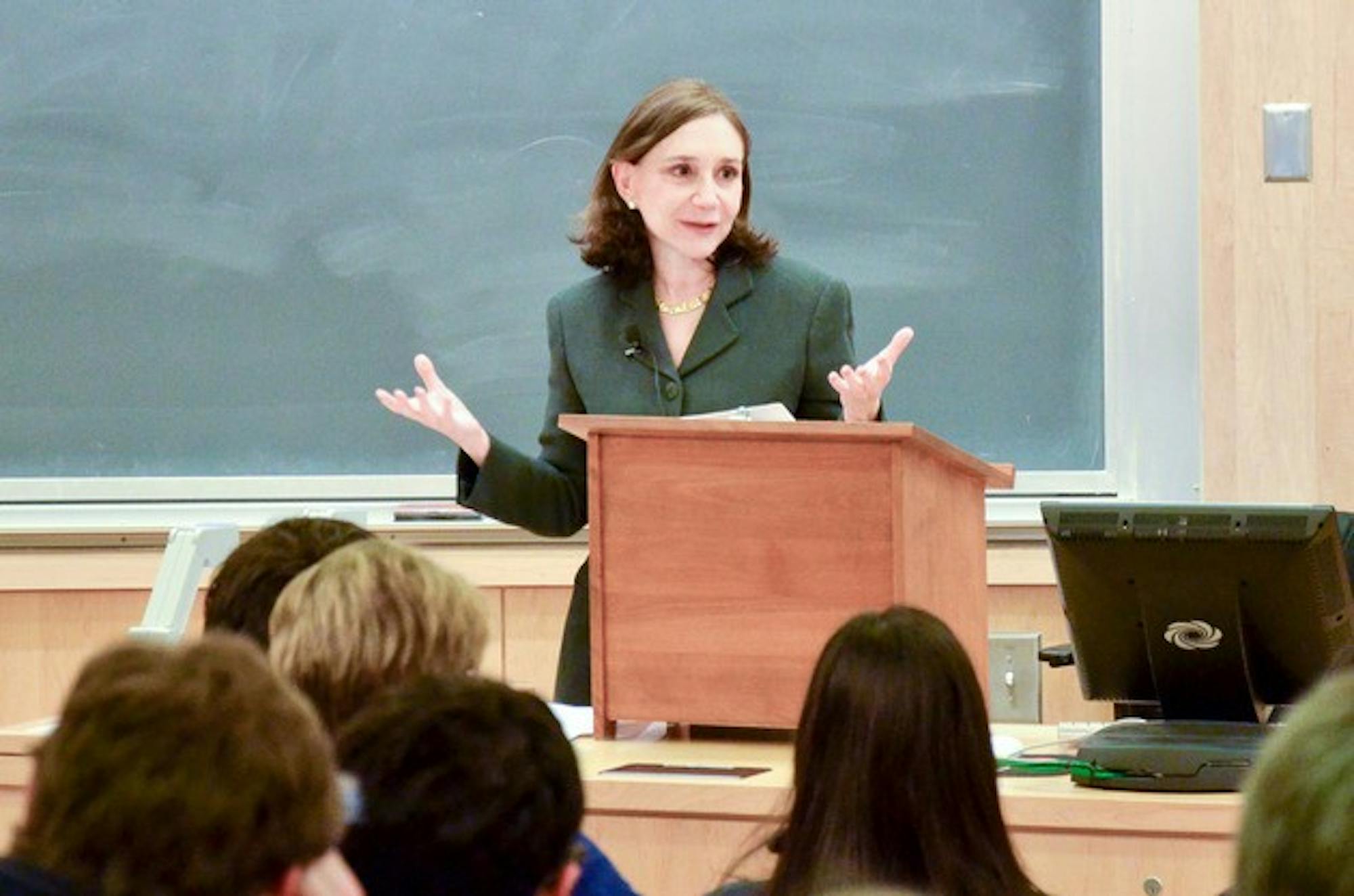Personal computers and cell phone technology have impacted many aspects of life, including dating, travel and privacy, Turkle said. Maintaining both personal boundaries and a constant connection to "the grid" is difficult, Turkle said, citing ethnographic research from her latest book, "Alone Together: Why We Expect More from Technology and Less from Each Other."
"We want to have this technology and maintain these sacred spaces as well," Turkle said. "It's as simple as that."
Technology users find themselves increasingly tied to their mobile devices and are constantly thinking about using them to communicate, according to Turkle. Teenagers demonstrate a particular desire to be connected to each other through technology at all times, she said.
"Teenagers sleep with their cell phones that's commonplace," Turkle said. "They say they're doing it because they're using it as an alarm clock but actually they feel more secure if they go to sleep with the cell phone close."
Turkle said she notices stark differences between the wired-in students she observes at MIT today and the typical students of 20 years ago. College freshmen who contacted their parents multiple times in a single day would have raised questions of "separation" and "autonomy" issues in the past, Turkle said. Today, this practice is considered normal, according to Turkle.
Technology has eliminated many learning opportunities during adolescence, Turkle said, citing a teenage birthday party in which attendees were on their phones instead of talking with each other. Instead of working through awkward moments and learning to communicate with the people present, party guests now use their mobile devices to remove themselves from the situation, she said.
Although present physically, teenagers as well as adults at a Thanksgiving dinner she attended last year "[have] all left the party" mentally, Turkle said.
"[In] moments where conversation might have happened, people texted," she said.
Turkle said her major concern with frequent technology use is protecting the individual right to privacy.
"We really have done nothing to protect our online privacy," she said.
Although the human-technology connection may present problems, it is not without its benefits, Turkle said. One of technology's most noticeable assets is the ability to collect and disseminate information to many people, she said.
"Can you imagine what we would know about what is going on in the Middle East now without this technology?" Turkle asked the crowd. "Next to nothing."
Turkle said that while critics may paint her as a proponent of eliminating technology, she hopes to shed light on the implications of increasing interconnectedness.
"We're not going to get rid of this technology it's our partner in the human adventure," Turkle said. "We have to learn how to live with this technology in the most helpful and constructive way."




